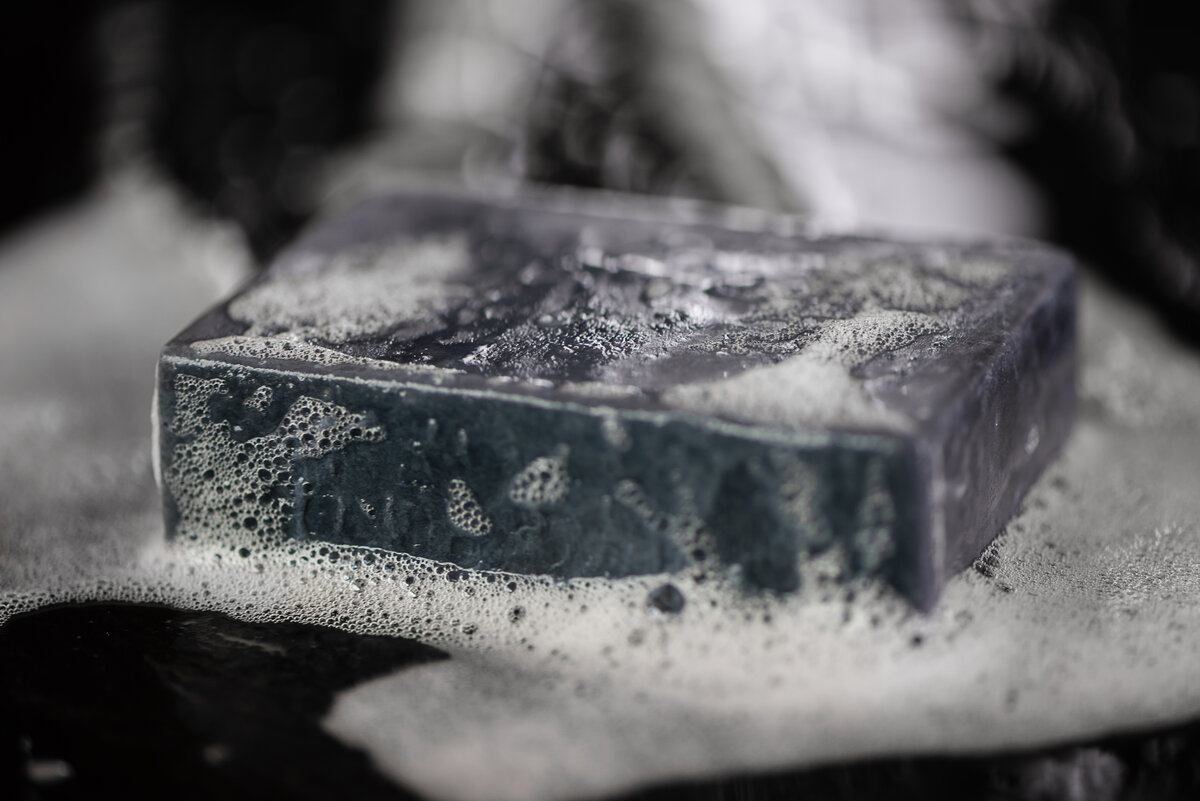A consistent comment about our bar soap is “the lather from your soap is so soft”. It thrills me every time I hear this because I know it is the natural nature of our products that causes this non-aggressive lather. The bigger thrill is the follow-up comment that their skin feels soft and healthy after use. I’m thrilled that people like our product. I also know what good ingredients we put into our bar soap, and what’s not in it. Don’t forget, skin is our largest organ, and what we put on it does soak into it.

Why don’t we put synthetic sulfates in our soap?
You’ve probably seen the commercials touting squeaky clean dishes or a commercial selling shampoo with the tallest lather. We’ve been “conditioned” to expect a certain look and feel from our soap lather. This is the result of years (since the 1930s) of using soap products containing sulfates. We’ve been told that a big foamy lather equals clean while the mass marketed soap makers are putting the same ingredients in their bar soap that they put in dish soap, and in heavy machinery degreasers. The two most common being Sodium lauryl sulfate (SLS) and Sodium laureth sulfate (SLE). To clarify, skin care and cosmetic products made with these sulfates use less than manufacturers of machinery degreasers. Many feel that makes it ok, they are following the “everything in moderation” approach. Even in the moderate amounts we are talking about that is a synthetic petroleum-based product being slathered on our skin and hair every day for years and years. If the skin and eye irritation from sulfates doesn’t bother you, consider how these products are made and their impact on the environment.
According to the EPA personal care products containing SLS and SLES are one of the major pollutants in our water. When multiple millions of people wash a “small amount” down the drain every day we are contaminating our ground water and introducing a substance that many believe is toxic to fish and other marine-life. Big cosmetic companies tell us that sulfates in the amounts they use have not been proven to be harmful. It is up to each of us to decide if we blindly trust that research when we determine what is soaking into our skin and our environment.
The added bonus: Since we don’t use synthetic sulfates or useless fillers our soaps last longer, so they are also budget friendly.
Parabens
We also do not put parabens in our bar soap or any of our skin care products. Parabens are a class of chemicals used as preservatives in a large number of cosmetic products. ¹Studies have found that parabens are not only easily absorbed into the skin, but that they also remain in our body tissues and fluids. Like sulfates, cosmetic giants tell us not to worry because it’s a small amount of 1 chemical, and we encounter many each day. They are correct that we all encounter many synthetics and chemical compounds every day. Again, I say, each individual should do their own research and make educated choices regarding which synthetics and chemicals they would like to be a part of the world where their families live.

